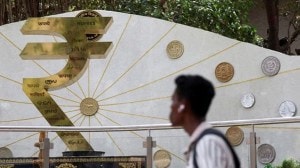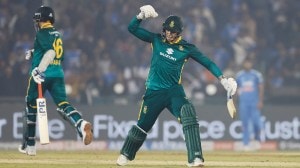Iran run-off: Voters split along class lines
Campaigning for Iran’s unpredictable Presidential run-off ended on Thursday with voters split broadly along class lines between moderat...

Campaigning for Iran’s unpredictable Presidential run-off ended on Thursday with voters split broadly along class lines between moderate cleric Akbar Hashemi Rafsanjani and his working-class hardline rival.
Supporters of Rafsanjani—who is bidding to regain the post he held from 1989 to 1997—say a win for ultra-conservative Tehran Mayor Mahmoud Ahmadinejad in Friday’s run-off would roll back outgoing President Mohammad Khatami’s modest reforms.
Despite being a Shi’ite cleric and a key founder of the Islamic state, Rafsanjani (70) now casts himself as a liberal. He has vowed to increase social and political freedoms, liberalise the economy and seek better ties with the West.
Speaking on state television, he described Iran’s nuclear standoff with the West as the most urgent foreign policy issue, saying Tehran needed to ‘‘convince the West that our programme is for peaceful purposes’’.
His support base lies mostly among the upper and middle classes and senior bureaucrats terrified of the sweeping changes that Ahmadinejad may bring to OPEC’s number-two oil producer.
Ahmadinejad’s supporters, in contrast, come mostly from the working class, rural poor and unemployed who admire his humility and pledges to redistribute the country’s vast oil income.
‘‘Ahmadinejad appeals to working class Iranians who feel that the oil wealth has left them behind,’’ said Karim Sadjadpour, Tehran-based analyst for the International Crisis Group. ‘‘They’re counting on him to look out for them.’’
Opinion polls, unreliable in the past, show the two men neck-and-neck. Analysts say the vote is too close to call.
Overnight, hundreds of Ahmadinejad posters sprung up across Tehran. Campaigning officially ended at 9 a.m. on Thursday, exactly 24 hours before polls open. The minimum voting age is 15 and 47 million people are eligible to vote. Results are expected on Saturday.
On Wednesday night, Ahmadinejad (48) dismissed rumours that he would introduce strict gender segregation in public and force women to wear the head-to-toe chador.
‘‘The country’s true problems are unemployment and housing, not what to wear,’’ he told state television.
He said he was in favour of Iran joining the World Trade Organisation, but stressed that local industry must be protected. ‘‘We need time and we need to defend our industry.’’
Emphasising his strong religious beliefs he began the broadcast with a reading from the Koran. But he was also at pains to show his liberal side, joking that his telephone bills were high because his children were constantly on the Internet, which is viewed by some religious hardliners as a source of moral corruption.
Washington, which accuses Tehran of building nuclear weapons and backing terrorism, kept up its criticism of the elections, which began with an inconclusive first round on June 17. ‘‘We stand with the Iranian people who want more freedom,’’ said White House spokesman Scott McClellan.
Vote-rigging allegations were raised after the first round. The reformist-held Interior Ministry has expressed concern about the possibility of vote manipulation in the run-off. —Reuters
- 01
- 02
- 03
- 04
- 05































